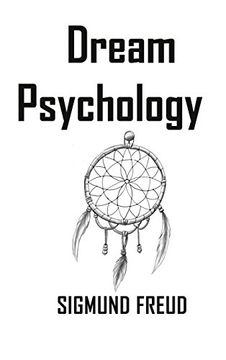Synopsis "Dream Psychology (in English)"
Dreams, in Freud's view, are all forms of "wish fulfillment" - attempts by the unconscious to resolve a conflict of some sort, whether something recent or something from the recesses of the past (later in Beyond the Pleasure Principle, Freud would discuss dreams which do not appear to be wish-fulfillment). Because the information in the unconscious is in an unruly and often disturbing form, a "censor" in the preconscious will not allow it to pass unaltered into the conscious. During dreams, the preconscious is more lax in this duty than in waking hours, but is still attentive: as such, the unconscious must distort and warp the meaning of its information to make it through the censorship. As such, images in dreams are often not what they appear to be, according to Freud, and need deeper interpretation if they are to inform on the structures of the unconscious. Freud used to mention the dreams as "The Royal Road to the Unconscious". He proposed the 'phenomenon of condensation'; the idea that one simple symbol or image presented in a person's dream may have multiple meanings. For this very reason, Freud tried to focus on details during psychoanalysis and asked his patients about things they could even think trivial (i.e. while a patient was describing an experience in their dream, Freud could ask them: "was there any sign upon the walls? What was it?"). As Freud was focusing upon the biologic drives of the individual (a fact that alienated him from several colleagues of his like Breuer, Jung and Adler), he stated that when we observe a hollow object in our dreams, like a box or a cave, this is a symbol of a womb, while an elongated object is a symbol for penis. Due to these statements, Freud attracted much criticism from those who believed him a "sexist" or "misanthrope", as he was alleged to have over emphasised the role of instinct, as though he believed people were "wild beasts".

